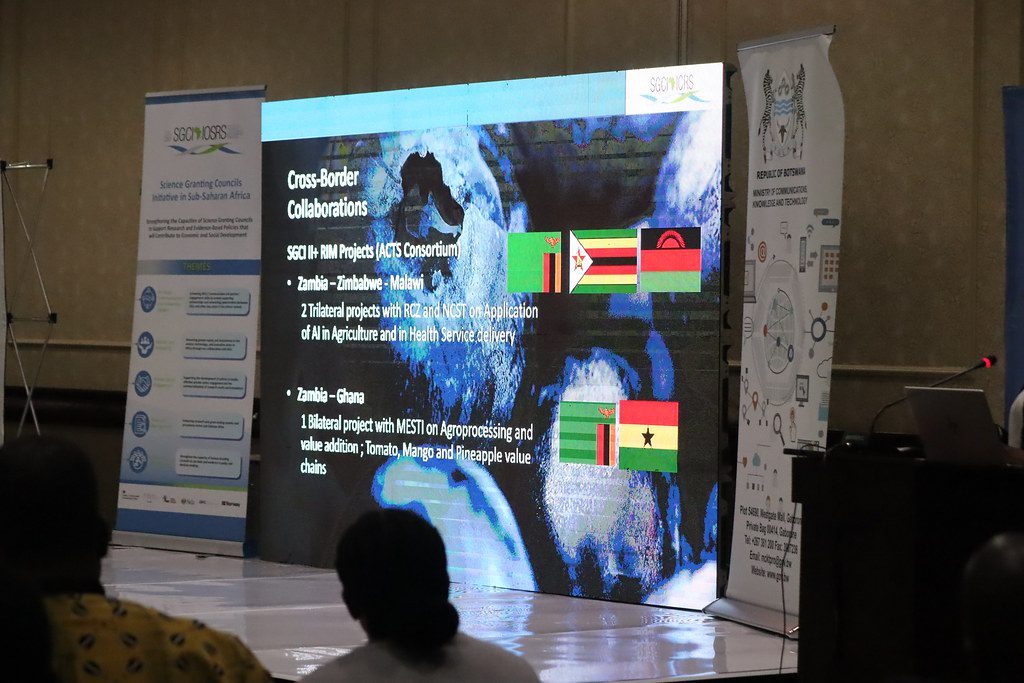SGCI News
Our May Footprints newsletter edition featured innovations that are needed to reshape Africa’s future. From solutions for food security to mining innovations. In our podcast, we extensively narrated the need…
Our May Footprints newsletter edition featured innovations that are needed to reshape Africa’s future. From solutions for food security to mining innovations. In our podcast, we extensively narrated the need to solve the forest crisis in Africa and why it is vital for the survival of millions of people who rely on them for food, medicine, fuel, and income.
Here are some excerpts
Uganda snack crickets chomp on food waste
Cricket farming provides a promising and eco-friendly protein alternative, but the cost of feed — around US$0 .68 per kilogram for poultry mash — has stunted its growth.
To address this, a team led by Geoffrey Ssepuuya, a senior lecturer at UCU, launched a project in September 2023 to develop low-cost, high-protein cricket feed from food waste.
“We are using one problem to solve another,” Ssepuuya said.
“We have a waste problem and a feed problem. By converting food waste into cricket feeds, we are solving both at once.”
Sand solution could cut mining cost in Botswana
Researchers in Botswana have converted ordinary sand into specialized mining chemicals that could slash the country’s mining operational costs by a third while ending its dependence on imported chemicals.
Scientists at the Botswana International University of Science and Technology (BIUST) have developed a chemical compound for mineral extraction using locally sourced sand — an innovation they say has already attracted interest from mining companies keen to pilot the innovation.
Currently, Botswana imports 100 per cent of its mining chemical from China, South Africa, and the United States, creating costly dependencies and supply chain vulnerabilities.
Artificial insemination a win for Zimbabwe’s farmers
A team of researchers at Lupane State University are testing low-cost reproductive technologies, including artificial insemination and crossbreeding in both poultry and goats, with early results showing striking gains.
They evaluated the impact of artificial insemination on goats and poultry across a number of smallholder farms.
While artificial insemination alone did not significantly outperform natural mating in goat fertility rates, both averaging around 85 per cent, offspring resulting from crossbreeding the two lines exhibited superior performance in both size and reproductive success.
Forest loss adds to Africa’s food crisis
In our podcast, we narrated how millions of people in parts of Africa are facing record levels of hunger.
Yet at the same time, the region is rapidly losing forests, one of its most valuable food sources.
These forests are not just biodiversity hotspots, they are vital to the survival of millions of people who rely on them for wild foods, medicine, fuel, and income.
Catch up on these stories and expect even more from our incoming newsletter this month.
Please check out the stories and let us know what you think. We would love to hear from you!
Let’s continue the conversation on our social media
Follow us on LinkedIn
Published on 17 June 2025
Written by Jackie Opara
Related News
How Zambia’s science council is funding research that matters
When Zambia’s National Science and Technology Council (NSTC) was established in 1997, its founding vision was to harness science, technology, and innovation to improve the lives of ordinary Zambians. More than two decades later, that vision is increasingly taking shape through a growing portfolio of…
Voices of SGCI: Council leaders on the direction and ambition of SGCI 3
At the African Union’s Science, Technology and Innovation Week in Addis Ababa, earlier this month, leaders of science granting councils reflected on what SGCI Phase 3 represents for Africa’s science and innovation systems. From ownership and alignment to stewardship and sustainability, here are their voices…
Building Africa’s science future: inside the SGCI alliance
As Phase 3 of the Science Granting Councils Initiative launches on the margins of the African Union Summit in Addis Ababa last week, the SGCI Alliance Chair explains why this moment marks a decisive turning point for African science. Cephas Adjei Mensah describes what is…
SGCI funded projects
Rwanda’s integrated approach to sustainable agriculture and nutrition
Project Titles & Institution Areas of Research Number of Projects being funded Project Duration Grant Amount In-Kind Distribution Council Collaboration with other councils





